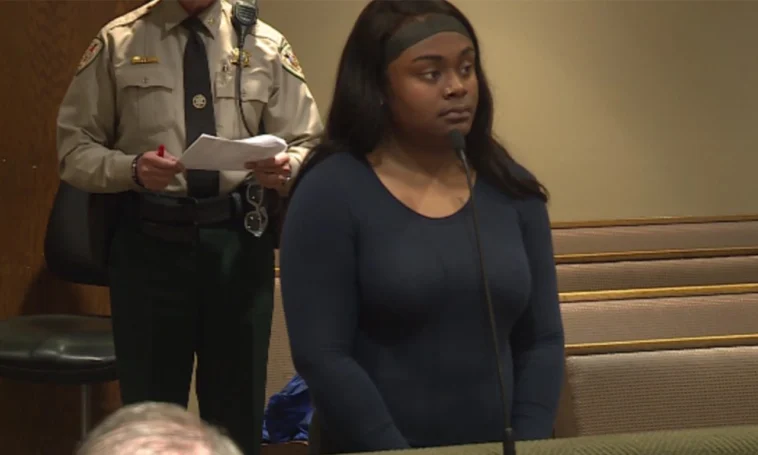Former Corrections Deputy Faces Court Over Allegations of Sexual Misconduct with Inmate. Akira Jones, a former Shelby County prison deputy, faced inmate sexual assault allegations in court on Tuesday.
On December 30, the Shelby County Sheriff’s Department initiated a criminal investigation after misconduct reports.
“If convicted, you might serve 1–6 years and pay $3,000 in fines.” – Judge Jennifer Fitzgerald Jones.
She is out on bond awaiting court hearings.
In court, Judge Jennifer Fitzgerald informed Jones, “You have been indicted in a one-count indictment for sexual contact with prisoners; Class E Felony.”
After telling the court she was seeking a counsel, Jones had over a month to find one.
Judge Fitzgerald also warned Jones that a conviction may result in a 1–6-year jail sentence and a $3,000 fine.
Jones is set to appear in court on May 6 with her attorney.
This shows the seriousness of the claims and the judicial procedure Jones will face as she defends herself against inmate sexual assault charges.
As the case progresses, it raises critical questions regarding prisons deputies’ roles in the criminal justice system. Law enforcement officers, especially those in charge of vulnerable populations like inmates, must be investigated and held accountable for sexual misbehavior.
Beyond individual cases, such claims affect correctional facility confidence and integrity. Law enforcement, including prison deputies, is trusted to uphold the law and protect their charges. Any abuse of this trust damages the criminal justice system and has far-reaching effects on convicts and society.
Inmate sexual misbehavior incidents also demonstrate prison power relations. Prisoners are generally powerless to defend their rights. Corrections deputies who mistreat detainees maintain a cycle of exploitation and cruelty that undermines justice and rehabilitation.
Corrections deputies’ sexual misconduct can have legal, professional, and emotional repercussions. If convicted, Jones could face prison time, fines, and criminal justice career damage. Such claims also undermine public opinions of prison officials’ honesty and professionalism.
Law enforcement authorities must investigate misbehavior charges to establish responsibility and prevent future incidents. Corrections deputies should get training and monitoring on boundaries and misconduct repercussions. Support and resources should also be provided for convicts who may be abused or exploited.
Jones’s case highlights the criminal justice system’s continued issues and complications. To promote fairness, integrity, and respect for all, law enforcement authorities must address wrongdoing and power abuse as society seeks accountability and justice.
These examples demonstrate the necessity for continual attention and reform to ensure corrections deputies act ethically and professionally. Law enforcement may promote confidence and integrity in correctional facilities by holding offenders accountable and preventing further wrongdoing.
Jones’s case emphasizes criminal justice openness and accountability. Law enforcement agencies must be transparent about misbehavior claims and investigations to maintain public trust. Community members have a right to know that misconduct claims are investigated promptly and equitably.
As the judicial process progresses, inmates must be supported and cared for. Inmate advocacy organizations protect the rights and dignity of inmates and prevent future suffering and exploitation.
In conclusion, resolving correctional facility sexual misbehavior needs accountability for individual actions and institutional adjustments to prevent future incidents. Law enforcement, advocacy groups, and community stakeholders can work together to promote justice, fairness, and respect for all criminal justice system participants.
In conclusion, skilled and ethical law enforcement is crucial, especially in sensitive situations, as the Akira Jones case shows. Accountability, prevention, and victim care can make the criminal justice system more fair and just.






Join the Community and Be a Part of the Conversation
You must be logged in or registered to post a comment.